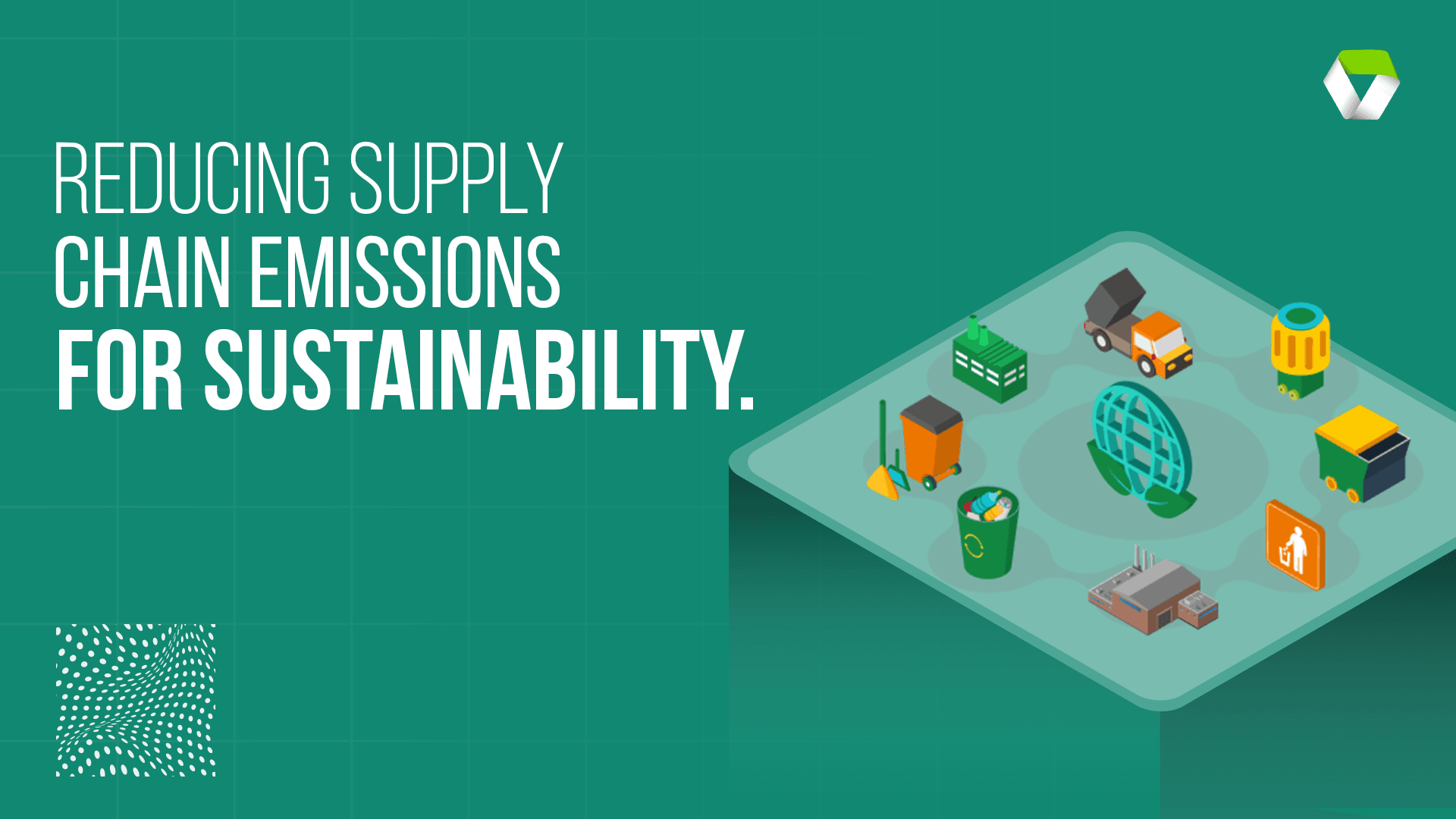Why all Businesses need Carbon Accounting
Author

Ravi Polepeddi
Product Manager

Author

Ravi Polepeddi
Product Manager
Reading Time
2 min read
As the world steps up its climate commitments, companies everywhere whether public or private are being asked to take responsibility for their environmental footprint. Carbon accounting, the process of measuring and reporting greenhouse gas emissions, is no longer a “nice to have.” It's becoming essential to doing credible, competitive and compliant business in the 21st century.
Whether it's regulatory compliance, attracting investors, or building a trusted brand, carbon accounting provides the data you need to act and lead on climate change. And that’s where the real story begins, understanding your footprint is the first step toward owning your impact.
What Is Carbon Accounting?
Carbon accounting is the systematic measurement and reporting of greenhouse gas (GHG) emissions associated with an organization’s operations. It helps companies understand where emissions are coming from across their value chain:
- Scope 1: Direct emissions from owned or controlled sources (e.g., company vehicles, onsite fuel combustion)
- Scope 2: Indirect emissions from purchased electricity, steam, heating, and cooling
- Scope 3: All other indirect emissions, including supply chain, business travel, product use, and end-of-life disposal
Just like financial accounting reveals fiscal health, carbon accounting shines a light on environmental impact enabling smarter business decisions and long-term sustainability planning. It lays the foundation for every climate commitment a company can make.
Why It Matters for Public Limited Companies
For publicly listed companies, especially in India, carbon accounting is increasingly tied to regulatory compliance and investor confidence. The top 1,000 listed entities are already mandated to submit a Business Responsibility and Sustainability Report (BRSR), which requires structured ESG data, including emissions.
Case in Point:
- Infosys achieved carbon neutrality in 2020, 30 years ahead of the timeline set by the Paris Agreement. The company has also established an internal carbon pricing system to raise awareness about the carbon footprint of each of its departments while incentivizing emissions reduction. Infosys’ Journey to Carbon Neutrality | India | UNFCCC
Globally, investors are integrating environmental performance into their evaluation criteria. Failing to report emissions or set reduction targets can mean losing access to capital or worse, losing investor trust.
Benefits for public companies:
- Stay compliant with regulations
- Reduce climate-related financial risks
- Attract sustainability-focused investors
- Strengthen long-term shareholder value
Why Private Companies Should act now
Carbon accounting isn’t just for listed corporations. Increasingly, private companies are being pulled into the climate action conversation through:
- Supply chain mandates
- Customer expectations
- Evolving global regulations
India: Voluntary Today, Strategic Tomorrow
While not mandated, many Indian private firms serve larger public or multinational companies that are required to disclose emissions, especially Scope 3. These companies are asking their vendors and partners to provide carbon data. If you can’t, you risk losing business.
Case in Point:
Mahindra & Mahindra Ltd., along with 20 other Mahindra Group companies, has committed to the Science Based Targets initiative (SBTi), aiming to reduce Scope 1 and 2 GHG emissions by 47% and Scope 3 emissions by 30% per unit by 2033 from a 2018 base year. https://sciencebasedtargets.org/companies-taking-action/case-studies/mahindra-and-mahindra-ltd
UAE: Regulation on the Horizon
In the UAE, a new climate law is in the works that will require private companies to report their emissions a clear sign that carbon disclosures are no longer limited to the public sector. Companies that act early will be better positioned for compliance and competitiveness.
Globally: The Net Zero Shift
In the EU, U.S., and other major markets, sustainability regulations are expanding to cover mid-sized and private firms. If your business operates internationally, serves global clients, or plans to grow carbon accounting is fast becoming non-negotiable.
The European Union's Corporate Sustainability Reporting Directive (CSRD) mandates that nearly 50,000 EU companies disclose their impact on the environment to help consumers and investors make sustainable choices. https://normative.io/insight/csrd-explained/
Strategic Advantages of Carbon Accounting
So even if you’re not yet required to do it, why get ahead now? Because the benefits speak for themselves.
- Enhanced Brand Reputation: Companies that report emissions and act are seen as responsible, forward-thinking, and aligned with global priorities. This drives customer trust and loyalty.
- Client Acquisition & Retention: Corporate buyers increasingly select vendors who can demonstrate climate action. Having carbon data on hand helps win contracts and strengthens long-term partnerships.
- Stronger Stakeholder Relationships: Employees, communities, and regulators respect companies that walk the sustainability talk. Carbon transparency boosts morale, trust, and engagement.
- Investor Readiness: If a private company plans to raise funds or go public, showing a track record of carbon accounting signals maturity and risk preparedness attracting the right investors.
- Operational Efficiency: Tracking emissions often highlights energy waste, inefficiencies, or high-impact areas. This can lead to cost savings, improved processes, and innovation.
- Future Proofing the Business: Starting now means you can adapt on your terms rather than scrambling to meet compliance later. Early movers shape the standards, rather than being shaped by them.
Aligning Carbon Accounting with Business Objectives
Before diving into tools or frameworks, it’s important to define what your business wants to achieve through carbon accounting. These objectives will shape your data strategy and long-term sustainability vision.
Common goals include:
- Leading your industry in emissions reduction
- Gaining visibility with clients, investors, and partners
- Staying ahead of regulatory requirements
- Mitigating climate-related operational risks
- Delivering on corporate social responsibility commitments
No matter your industry or size, carbon accounting is not just a reporting exercise it’s a strategic tool for building resilience, relevance, and reputation.
If you’re thinking about your business objectives for tracking emissions it may be helpful to talk with our team.
Connect with our team > https://sustainium.io/contact-us
Take Control of Your Carbon Footprint
Empower your business to lead on climate action through accurate and transparent carbon accounting.
Recent Blogs

How Sustainability Consultants Can Overcome Real Estate’s ESG Challenges
Buildings account for over 26% of global energy-related CO₂ emissions, highlighting the real estate
Read more...
Why Shift from Excel to Sustainium for Carbon Inventorization?
As someone in charge of your company’s carbon inventory, chances are you’ve probably started with Excel—like most of us.
Read more...
10 Ways in which a Textile industry can reduce its Carbon (GHG) emissions
The textile industry significantly contributes to global Greenhouse gas (GHG) emissions, accounting for around 10%
Read more...
10 Way to Reduce Carbon (GHG) in the Construction Industry
The construction industry is a significant contributor to global Carbon, a.k.a., Greenhouse gas (GHG) emissions
Read more...
10 ways in which manufacturers can reduce their Carbon (GHG) emissions
A quarter (23%) of direct emissions in the US is contributed by manufacturing alone.
Read more...
Managing an organization’s supply chain emissions: Key to building sustainable businesses
Amazon has asked its highest-emitting suppliers, collectively responsible
Read more...